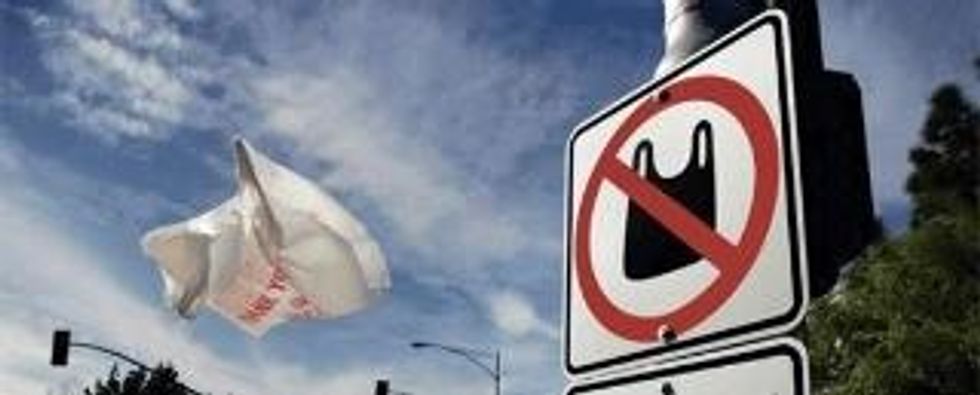I've long had suspicions that the recycling I put out in my driveway doesn't really get recycled. My doubts went up when my town went to "single stream" recycling. Now we toss paper, plastic, cans, and bottles all into one big bin. Can they really sort that stuff out?
So I jumped at the chance to tour a facility that recycles single stream waste. I was totally impressed: magnets pull out tin cans and other steel, blowers separate paper, optical scanners sort plastics, and gravity collects bottles. People pick out the mistakes. My doubts were quelled. I should have been delighted.
Instead I was depressed. I watched truck after truck roll in, dumping piles of unsorted junk. The sheer magnitude was overwhelming. I kept thinking how all this stuff comes from some lovely place on Earth that may have been ruined to make it. Most of it was likely used for just days or even minutes.
The visit added to my intense desire to help reduce the flow of stuff. I've joined my town's "zero waste" team. I sort out compostables at the town's Fourth of July festivities. I use my YES! canteen to avoid plastic bottles. I wrap presents in newspaper.
But I know we also need solutions bigger than individual action. To learn more, I turned to Richard Conlin, who's on the YES! board and the Seattle city council. Seattle is one of a growing number of cities with a long-term goal of zero waste. Over the last decade, the city has cut the atemrial it sends to the landfill by 34 percent, even though the population has grown. Richard cited four important solutions Seattle is using:
- Product bans and fees. Plastic bags used at checkout counters and Styrofoam food containers are two items that Seattle and other cities have banned. When Ireland put a hefty fee on plastic bags, their use went down by 94 percent.
- Takeback programs. Also known as "extended producer responsibility," these programs require companies to take responsibility for worn-out products. That gives product designers incentive to make it easier to reclaim components. The European Union mandates producer responsibility for cars. In the United States, Seattle and other cities, along with some states, are demanding producer responsibility for a growing list of products, including electronics, paint, batteries, carpets, and fluorescent lights.
- Promoting composting. Seattle and other cities now require that to-go food containers be compostable. Some, including Seattle, make composting food and yard waste easy by providing curbside pickup.
I longed for simpler surroundings. So I made a resolution: Each week I would move more stuff out of the house than came in.
- Demolition permits. Many cities encourage contractors to recycle demolition waste. But contractors often resist, partly because once they get their permit to build, their line of credit kicks in and they are under tremendous financial pressure to build quickly. Recycling slows them down. So Seattle gives the demolition permit well before the construction permit. The percentage of the city's demolition waste that is recycled has risen to 66 percent.
The individual actions we take to reduce waste are important. But to stem the avalanche of stuff that invades our lives and destroys our Earth, we also need system-wide solutions. Fortunately there are lots of them and many can be enacted in our own towns and cities. This holiday season, when stuff is on our minds, is a great time to make a New Year's resolution to help our communities get on the road to zero waste.




